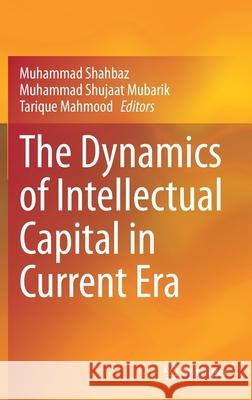The Dynamics of Intellectual Capital in Current Era » książka



The Dynamics of Intellectual Capital in Current Era
ISBN-13: 9789811616914 / Angielski / Twarda / 2021 / 290 str.
The Dynamics of Intellectual Capital in Current Era
ISBN-13: 9789811616914 / Angielski / Twarda / 2021 / 290 str.
(netto: 460,04 VAT: 5%)
Najniższa cena z 30 dni: 462,63
ok. 16-18 dni roboczych.
Darmowa dostawa!
Chapter 1 Ambidextrous Intellectual Capital (AIC): A Measuring framework
Tarique Mahmood, Muhammad Shujaat Mubarik, Tahir Islam, Navaz Naghavi
Chapter 2 Educational Context of Intellectual Capital: An Exploratory Four-Factor Study
Janet L. Hanson, Muhammad Niqab, and Arthur Bangert
Chapter 3 The Role of Intellectual Capital as a Determinant of Firm Value
Rumeysa Bilgin
Chapter 4 Intellectual Capital and Firm Internationalization
Ekaterina Panarina
Chapter 5 Relational Capital and Blockchain: Can Smart Contracts Redefine the Nature of Inter-Organisational Cooperation?
José Brache, Anne Marie Zwerg-Villegas
Chapter 6 Human capital, economic growth, and sustainable development goals: An evaluation of emerging economies
Suborna Barua
Chapter 7 Managing intellectual capital for open innovation: components and processes?
Muhammad Faraz Mubarak, Monika Petraite, Kristina Kebure
Chapter 8 The Proliferation of Intellectual Capital through Leadership
Muhammad Mumtaz Khan, Jia Guozhu, Syed Saad Ahmed, Farhan Sohail, Muhammad Ali
Chapter 9 Efficient Utilization of Intellectual Capital for Sustainable Development: A case of Pakistan
Hina Amin and Wasim Abbas
Chapter 10 Enhancing Intellectual Capital and Organizational Performance through Talent Management
Syed Saad Ahmed, Muhammad Mumtaz Khan, Essa Khan, Farhan Sohail, Noman Mahmood
Chapter 11 Modelling Intellectual Capital with Financial Inclusion: The Mediating Role of Economic Growth
Muhammad Ali, Chin Hong Puah, Rajah Rasiah,Tazeen Arsalan and Anum Hashmi
Chapter 12 Web domain as a proxy for intangibles in measuring the MNEs’ internationalization
Lukasz Bryl
Chapter 13 Managing Intellectual Capital through Strategic Leadership: A Complementary Approach
Imran Shafique, Nosheen Rafi, Masood Nawaz Kalyar
Chapter 14 Intellectual capital and Supply Chain Mapping: A proposed Framework
Mahmoood Ali, Muhammad Shujaat Mubarik, Sajid Nazir
This book provides an authoritative, inter-disciplinary, and up-to-date survey of relevant concepts, research areas, and applications of intellectual capital. Until now, the literature had lacked a comprehensive analysis of intellectual capital (IC) in regard to sustainability, block chain, and other related technologies and virtual environments. This book shows the importance of intellectual capital for contemporary organizations: how it contributes to theories of the firm, how it affects organizational performance, how is it linked with the organizational ambidexterity, how it connects to the technological developments like block chain and digital technologies, and what would be its association with sustainability. Central to our thesis is the systemic nature of intellectual capital in organizations: how intellectual capital interacts with and complements other organizational resources and developments. This book also shows as to how applying the notion of intellectual capital to organizations requires us to consider how intangible forms of capital differ from more traditional forms, implying the need for a theory of firm that accommodates a concept of dynamic, heterogeneous intellectual capital. Although a lot has been written on IC, this book proves to be the first with scholastic and action-oriented perspective on as to how a firm can manage its IC to create value. This book also demonstrates as to how the subjective aspects of IC can be measured and what can be their strategic implications. A discussion on IC disclosure also appears in the latter part of the book. In doing so, this book reveals as to how the value creation of today’s businesses is driven by the IC. This book also introduces the readers to the new application of IC and its association with the contemporary disruptive technologies.
This is a book for IC researchers and academicians who want to understand the diverse aspects of IC, for business managers who want to be at the cutting edge, for those early in their careers who seek a challenging new path, and for the top-level managers of the world who have their eye on the future.
1997-2026 DolnySlask.com Agencja Internetowa
KrainaKsiazek.PL - Księgarnia Internetowa









